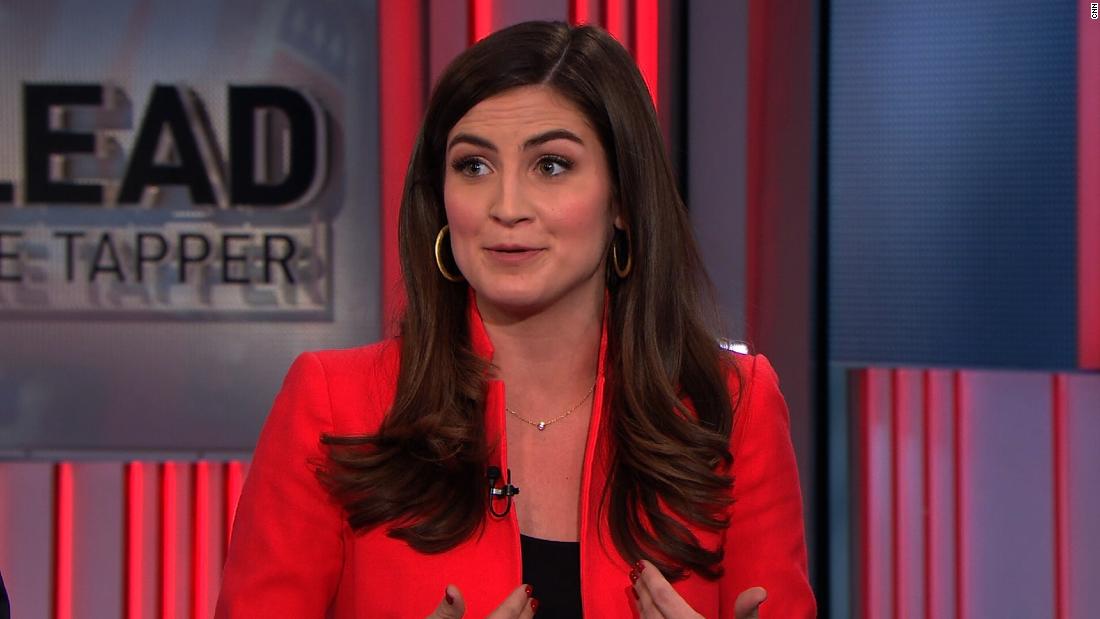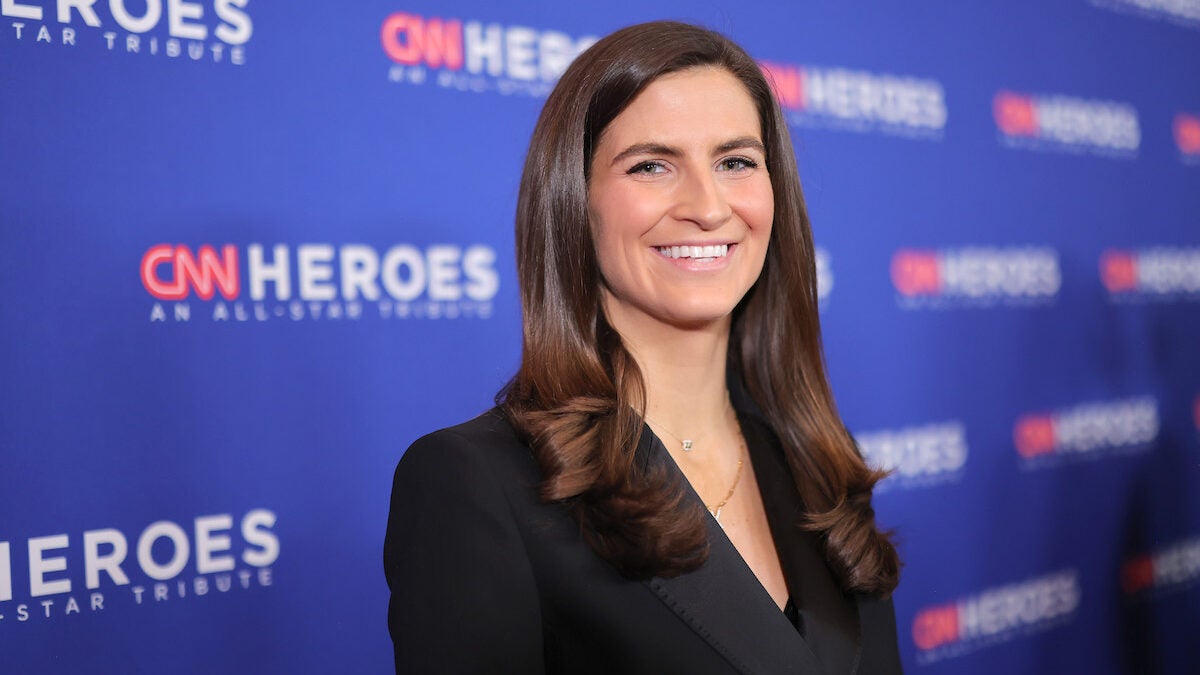Is the personal life of a prominent public figure fair game for speculation, or does everyone deserve a fundamental right to privacy? The intersection of celebrity, identity, and the internet creates a complex landscape where the boundaries of public and private often blur, and the discussion surrounding Kaitlan Collins is a prime example.
The career of Kaitlan Collins, the American journalist and CNN news anchor, has been under intense scrutiny. Born on April 7, 1992, Collins has steadily risen through the ranks of broadcast journalism, becoming a recognizable face in the world of news. Her role as a news anchor on CNN and her hosting duties for "The Source with Kaitlan Collins," which premiered on July 10, 2023, have placed her firmly in the public eye. This increased visibility, coupled with the ever-present nature of social media, has led to a surge of interest, and sometimes, speculation, about various aspects of her personal life. Recent developments have brought certain questions to the forefront.
The scrutiny surrounding Collins reached a fever pitch after screengrabs of old tweets she apparently sent in 2011 resurfaced. These posts, which included a gay slur, prompted an apology from the journalist. The incident served as a reminder of the impact of social media and the way past actions can resurface and be reevaluated in the present. This incident, however, is just one thread in the broader narrative surrounding her, as questions about her gender identity have also emerged. The inquiry into whether Kaitlan Collins is transgender has been a subject of discussion across various online platforms, with many people asking the same question.
| Category | Details |
|---|---|
| Full Name | Kaitlan Collins |
| Date of Birth | April 7, 1992 |
| Profession | American Journalist, News Anchor |
| Current Role | News Anchor at CNN, Host of "The Source with Kaitlan Collins" |
| Education | Information not publicly available |
| Notable Achievements | Rising to prominence as a White House Correspondent and then as a CNN anchor. |
| Relationship | Previously in a relationship with Will Douglas in 2015. |
| Social Media | Information not publicly available |
| Reference | CNN Profile |
The controversy surrounding Collins isn't just about the tweets. It is a complicated web of factors including the evolving social landscape and the public's evolving understanding of gender identity. Her career, particularly in covering high-profile events and political figures, places her in a position where her actions and words are consistently scrutinized. The intense focus on her has led to both professional and personal examinations. As an example, her interview with Texas Republican Dan Crenshaw regarding his shifts on transgender military members shows the intensity and type of issues she covers.
The public discussion has also touched upon whether she is transgender. It is important to state that whether someone is transgender is a highly personal matter, and any speculation without clear evidence or consent can be considered a serious violation of privacy. The narratives around gender identity are complex, and it is essential to approach such topics with the highest degree of sensitivity. The experiences of transgender individuals vary widely, and assumptions based on appearance or other external factors are often inaccurate and disrespectful. The best practice is to respect the individuals self-identification and to avoid making presumptions.
In the context of media representation, the coming-out story of Kaitlin Collins, the actress and singer, has been well-documented. She came out as transgender in 2019 and has since been lauded for her openness in sharing her experiences as a trans woman. This provides a different lens through which to view the broader discussions on gender and identity in the media. However, the two Kaitlan Collins are different people, and it is necessary to distinguish between the two to avoid confusion. The journalist Kaitlan Collins is known for her work in the news, while the actress and singer is known for her roles on television.
The current media landscape also brings up questions about the ethical considerations of reporting on gender identity. Media outlets have a responsibility to ensure accuracy and avoid causing harm through their reporting. The focus should remain on providing factual information and respecting the privacy of individuals. The debate often includes questions of sensitivity and the avoidance of potentially harmful stereotypes. The goal should be to create an environment where individuals are free to share their experiences without fear of prejudice or misunderstanding.
The broader conversation also involves the representation of transgender people in media. The increased visibility of transgender people in various fields has contributed to a more inclusive and nuanced discussion about gender identity. This includes celebrating the success of transgender individuals and providing them with platforms to share their stories. The medias role in this process is to accurately and respectfully depict transgender people and to promote understanding and acceptance.
The surfacing of older tweets and the speculation about gender identity have undoubtedly put Collins under more pressure. The incident serves as a reminder of how past actions and online behavior can have consequences. In these situations, it is essential to address the issue with fairness and transparency. This includes acknowledging the mistake, expressing regret, and learning from the experience. Accountability, while not always easy, is vital for maintaining trust and moving forward.
The debate is influenced by political discourse and the evolving cultural landscape. Debates about transgender rights and social justice issues are often highly charged and can create division. It is important to approach these discussions with respect for diverse perspectives and a willingness to listen to different viewpoints. The goal should be to foster constructive dialogue and to seek common ground where possible.
The issue of fair promotion practices in the news industry has also arisen. Some people think that experienced anchors should occupy the prime time slots, while others believe that the network is making a deliberate effort to promote certain individuals. Questions regarding the fairness and transparency of promotion practices have been raised. The decision-making process and the factors that influence these decisions are often a topic of discussion among media watchers and industry insiders.
The public image of a journalist like Kaitlan Collins is carefully constructed and managed. A variety of factors shape it. A journalists professional performance, demeanor, and communication skills are all critical. Maintaining a consistent brand and image is essential to building and maintaining credibility in the news industry. The medias perception of an individual and their ability to interact effectively with the public and other media outlets are also important factors.
The professional challenges faced by journalists in a rapidly changing industry are noteworthy. The role of media in society and the challenges it faces in the digital age are significant issues that can affect the individual journalist and the broader media landscape. The pressure to keep up with the ever-changing technological landscape, the demands of a 24-hour news cycle, and the increasing prevalence of misinformation present challenges to the credibility and trust of the news industry as a whole. Those who work in media have to adapt to the challenges.
The importance of respectful dialogue and accurate representation cannot be overstated. Discussions about gender identity, sexuality, and other personal aspects should always be approached with respect for individual privacy and a commitment to accuracy. Avoiding harmful stereotypes and promoting a greater understanding of diverse experiences is essential to building a more inclusive and just society. The medias role in this is crucial.
The case of Kaitlan Collins serves as a window into the complex realities of public life. It emphasizes the significance of protecting individual privacy while understanding the dynamics of the media. As the media landscape keeps evolving, it is vital to balance public interest with individual rights. The discussions around Collins and similar public figures offer essential lessons on how to navigate this complex landscape with sensitivity and respect.


